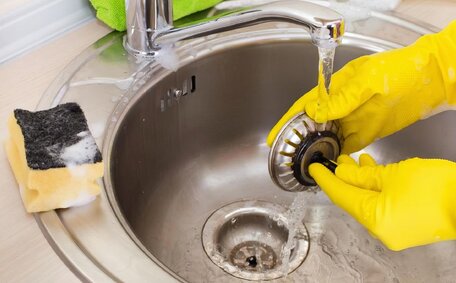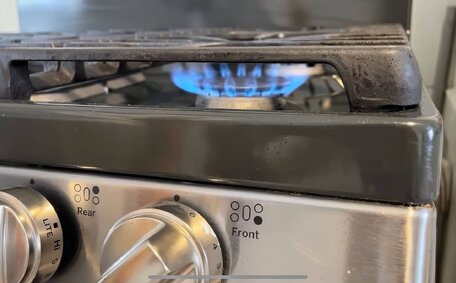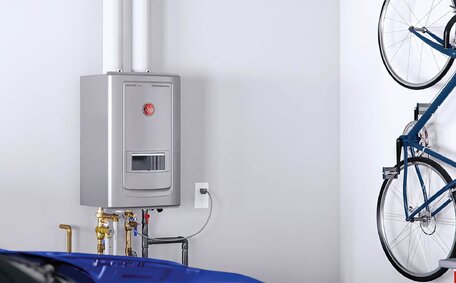Introduction to Detecting Blocked Drains
Overlooking blocked drains can result in costly repairs. Clogs from debris, soap residue, and other materials disrupt water flow, causing backed-up pipes, sink floods, foul odours, and significant damage if not addressed.
Detecting and resolving blockages promptly is crucial to prevent further issues. Quick action to locate the clog assists homeowners in clearing their drains and avoiding additional problems.
Some signs blocked drain scenarios in Pennant Hills, Sydney homes include gurgling sounds from pipes, sinks that are slow to drain, toilets that overflow, or standing water pooling around floor drains.
This guide will outline common causes of blocked drain scenarios, useful tools for diagnosing drainage problems, effective methods that homeowners can try themselves to clear blockage, and when it’s time to call for professional plumbing services for more severe blockages.
Common Signs of a Blockage
Understanding unblocking techniques is essential when faced with slow-draining or stagnant water, indicating a blockage. Water lingering in sinks, showers, bathtubs, and toilets often signals a blockage. Slow-draining or pooling water usually means pipes are obstructed by debris, grease or other matter.
Strange gurgling sounds coming from pipes or drains can signal a drain blocked issue. As water attempts to pass through a partially clogged drain, air bubbles through the debris causing the system to gurgle. These noises tend to be loudest near affected drains or those closest to the clog, which is why it’s necessary to ensure your methods are effective.
Unpleasant Odours
Properly functioning P-traps, filled with water, prevent sewer gas entry and aid in clog prevention. Blocked pipes may cause trap water to escape, allowing foul odours to rise through your drains. Foul, rotten egg, or sewage smells usually mean gas buildup due to blockages that restrict water down the drains.
Slow or Backed Up Drainage
It’s particularly frustrating when hot water struggles to flow through backed-up or slow drains at home. When drains can’t efficiently carry away wastewater, daily activities like enjoying a hot shower, washing dishes, or flushing toilets can grind to a halt, especially if hot water systems are compromised and hot water down cannot clear it.
Slow drainage or water taking much longer than usual to empty from a sink, tub, or toilet bowl are clear signs blocked drains are present.
Drains are designed to swiftly carry away water and debris, so a delay often means something is obstructing the pipes. Standing water that takes long periods to drain or continuously pools around drains indicates a blocked drain can be partial or fully blocked.
Hair and soap residues commonly slow water flow in bathroom and kitchen drains, notably in showers and tubs.
Addressing slow drainage quickly can prevent severe blockages in your plumbing. Minor clogs are generally easier to clear before they worsen into complete obstructions. It also prevents excess water backup which can lead to flooding, damage to your property, and overflowing sewer gases.
Gurgling Noises
Gurgling noises in your pipes from sinks, tubs, or drains may suggest trapped air and possible blockages in the drainage system. These bubbling sounds tend to be most noticeable when coming from a compromised blocked sewer drain.
When drainage pipes become partially clogged with most common residues like hair, debris, or grease, water flow slows. Attempting to squeeze past obstructions in your drains, air bubbles up through the moisture creating gurgles or glugging sounds in pipes. The noises signal venting issues and can precede complete clogging if debris steadily amasses.
Odd gurgles often emerge during or just after drain usage, such as showering or washing dishes. Higher pitched or louder gulping sounds usually mean substantial buildup impeding water movement. Gurgles from sinks and tubs often suggest small clogs, but louder toilet gurgles may signal larger obstructions needing professional attention.
Strange noises always warrant further inspection. Louder gurgles likely need professional drain inspections to locate, diagnose and clear embedded clogs.
Using drain augers or decloggers, followed by a CCTV inspection, might ease venting issues, especially with routine checks. Left unaddressed, substantial blockages indicated by excessive gurgling can completely halt drainage leading to pipe damage or flooding if water backs up extensively.
Sewage Odors
Sewage smells emanating from drains can indicate blockages, prompting the need to clear your system or fix ventilation problems that let gases in. Such foul smells can be a health hazard and indicate plumbing issues that need immediate attention.
Sewer gases emit highly objectionable rotten egg, decaying matter or chemical-like smells. Inhaling the toxic fumes can cause nausea, headaches, breathing difficulties and other ill effects, especially in children or those with respiratory conditions.
Foul smells generally begin at sinks and fixtures closest to the blocked drains. Sink, tub and floor drains commonly allow smells from sewer pipes to enter living spaces when their water barriers dry up due to blockages. Gurgling sounds may precede smells as gases force their way through standing water.
While attempting to remedy the issue with diy methods is possible, professional drain inspections using tiny cameras can locate embedded obstructions to unblock drain issues more effectively. Clearing debris, soap scum, root overgrowth or other accumulations can restore proper ventilation and water barriers. Left unaddressed for even a few days, seeping sewer gases significantly degrade indoor air quality and health.
Relining pipes where cameras have been inserted can also help prevent gas infiltration.
Should foul smells remain after DIY efforts, it’s crucial to contact professional plumbers to investigate your sewer issues. Allowing raw sewage gases to continually infiltrate homes can create serious health consequences requiring professional mitigation.
Overflowing Drains
Drains overflow when clogs block the path of water through the pipes. As sinks, tubs or toilets drain, the clogs cause water to back up and spill out of fixtures. Blocked drains can cause overflows in bathrooms, kitchens, and basements, resulting in damage to water systems and potential expensive repairs.
Standing water around your outside drain indicates partial obstructions. Generally, overflows clearly indicate a blockage that prevents normal drain function.
Prevent impassable buildups by avoiding the disposal of grease, hair, leaves, and paper into drains. Overflowing toilets often result from not knowing how to use your toilet properly, such as flushing too much toilet paper or foreign items.
Resolving slow drains or gurgling noises early can reduce the risk of overflow and subsequent damage. Turn off affected water supplies immediately and soak up flooding with towels to minimise harm until plumbers arrive.
For completely blocked drains, a camera inspection followed by water jetting can be highly effective. Attempting makeshift DIY drain augers could worsen clogs than what can happen with professional intervention.
With high-pressure water jetting, mechanical snaking, and camera inspections, Pennant Hills Plumbing can pinpoint overflow causes and clear blockages effectively. Having regular maintenance checks and learning to use drain maintenance methods also prevents costly overflows through early clog detection. For pressing drain issues, reach out to your local plumber from our committed emergency teams at any time.
Using a Drain Camera to Visualize Blockages
CCTV drain cameras are highly efficient for diagnosing blockages, simplifying what could be a complex task into a straightforward process. Pennant Hills Plumbing can clear your blocked pipes by threading these compact waterproof cameras down them to pinpoint and assess clog locations and causes.
Without the right techniques, improperly using drain snakes can damage the pipes rather than effectively clear blockages. But Cameras provide live visual confirmation identifying exact sites and sources of obstructions to inspect your hot water system without invasive excavations.
Flexible cabled cameras navigate through pipes, capturing clear visuals for analysis and identifying blockage causes. Technicians can determine if tree roots, collapsed sections, grease, or waste debris cause blockage or impede flow in your drainage system.
When drainage issues persist despite your efforts, camera inspections can definitively diagnose the embedded problems that have been carried out. A thorough drain inspection can survey entire pipelines confirming if complete removals, relining repairs, or isolated augering will remedy situations.
Quick and precise diagnoses with specialized tools enable plumbers to resolve blocked drain issues, avoiding unnecessary expenses. Regular check-ups can clean out your drainage system, helping to proactively monitor and guard against unexpected emergency blockages.
Listening Devices to Detect Blockages
Acoustic listening devices provide a non-invasive approach for identifying clogs in drainage pipes. These devices use sensors placed against pipes to detect noises signaling a potential drain blockage due to running water or sewer gases. Any change from the normal sounds can indicate potential obstructions.
Initially, technicians use acoustic sensors on healthy pipes to establish a performance baseline for your drains. Next, placing sensors near problematic drains during usage or drainage can reveal differences signalling clogs. Louder noises like gurgles point to substantial blockages as air and water force through, while lower flow sounds or dripping can mean partial obstructions.
Listening devices survey systems to broadly pinpoint issues, with inspection cameras then confirming exact locations, offering a comprehensive problem-identification approach. The acoustic method is completely external and non-destructive, which can then be followed by precise interventions without pipe damage from blind drain snaking. Areas suspected of holding clogs then undergo camera checks or jet flushing without wasting efforts clearing unaffected lines.
Conducting a follow-up inspection on your pipes after acoustic testing to visually confirm the source ensures the correct approach to tackling the blockage. Together, acoustic devices and cameras can accurately uncover elusive obstructions for targeted removal, restoring free flow.
When to Call a Professional Plumber
Several situations warrant calling professional plumbing services to address blocked drains rather than resorting to DIY remedies:
- If using a drain cleaner, plungers, drain snakes, or home remedies has not been successful in clearing clogs after several attempts
- When overflowing water, sewage backups or foul odours indicate a critical issue with a blocked sewer drain
- If multiple fixtures are clogged simultaneously indicating issues in the main sewer lines
- In the presence of substantial root intrusions, pipe leaks/damage or misaligned joints affecting your sewer line
- For commercial properties or large home systems requiring specialised hydro jetting or equipment
- When cameras or listening devices pinpoint major blockages too hazardous for novices to address
- To prevent injury or unsafe exposure to contaminants when clearing severely clogged drains
- If you lack the proper gear, expertise or physical ability to diagnose and clear your specific drainage issues
At the first signs of severe blockages, it’s pivotal to involve a plumbing service, staffed by specialists who comprehend your system; Pennant Hills Plumbing’s 24/7 emergency teams are fully equipped to accurately diagnose causes and tackle embedded obstructions.
Our hydro jetting and mechanical snakes can scour your pipe systems with minimal invasive damage, while CCTV cameras confirm clearance from any blocked drainage. Our services cater to older pipes as well, with offerings such as pipe relining, replacements or realignments to upgrade ageing drains.
Preventing Future Blockages
There are several effective ways to help prevent future drain blockages:
Dispose of Wastes Properly
To maintain your plumbing, avoid pouring fats, oils, and food waste into drains, and use cold water rinsing in sinks and toilets. These materials can accumulate, coating the inside of pipes and leading to significant obstructions over time. Scrape plates into trash bins and collect oil in containers rather than let food scraps go down and risk blockage in the kitchen sink.
Install Drain Screens
To keep your drains clear, fitting sink, shower, and tub drains with fine mesh screens works well for trapping hair and debris. Clean screens regularly to allow water to drain freely.
Flush Pipes Monthly
Regularly using a mix of boiling water and soda vinegar poured down your sink can help prevent greasy buildups, keeping your drains flowing smoothly. Avoid corrosive caustic cleaners and opt for natural solutions to maintain your pipes.
Have Regular Maintenance
Annual CCTV inspections by Pennant Hills Plumbing can identify and address slow drains or minor obstructions, preventing escalation into major blockages. We also assess pipe alignment and damage needing repair.
Give us the opportunity to prevent full clogs with routine plumbing maintenance, saving you both money and inconvenience in the future. Contact our friendly team anytime for a consultation.






